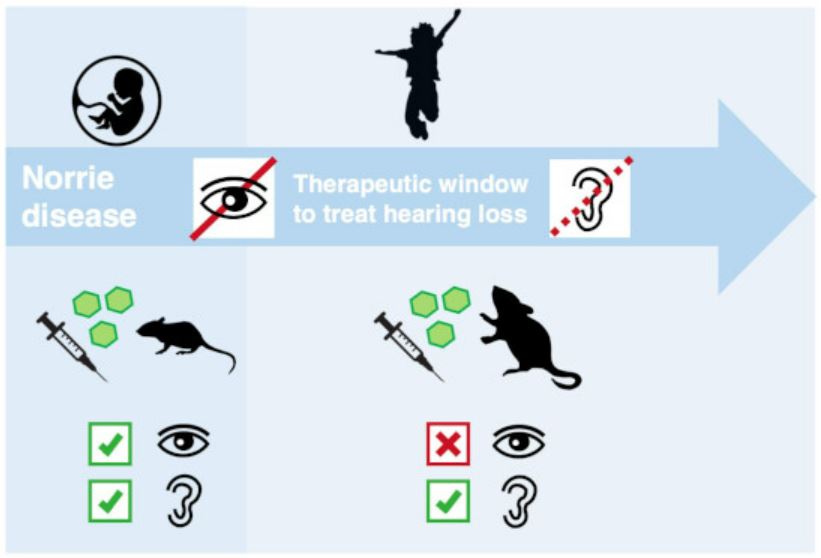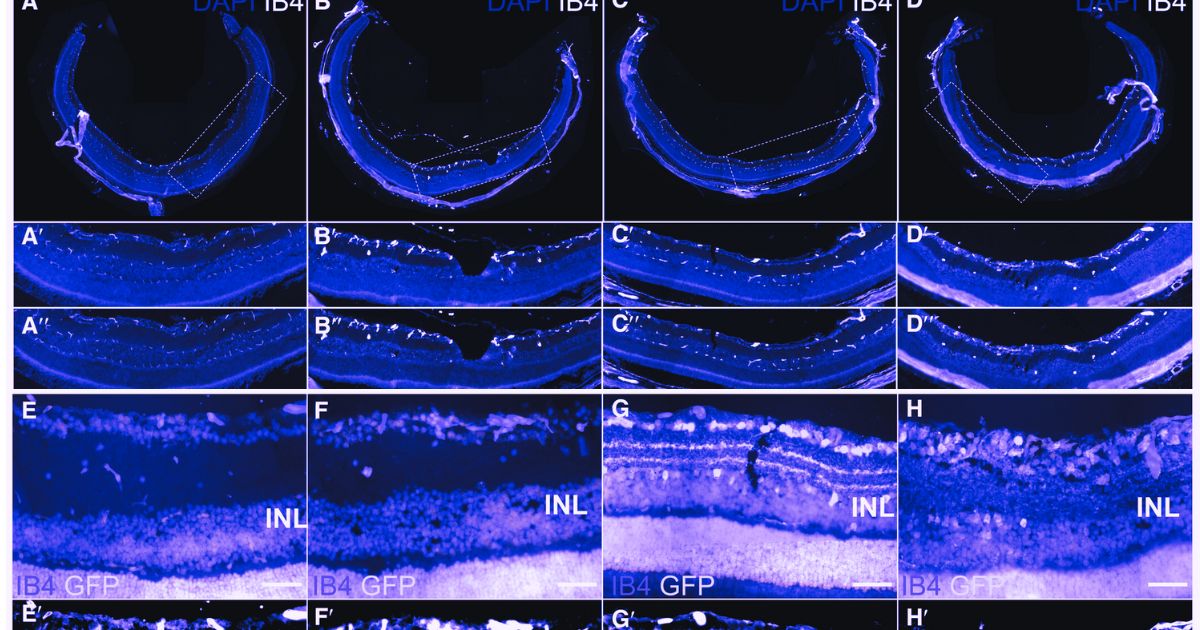In a remarkable breakthrough, an international team of scientists led by researchers at University College London (UCL) and the NIHR Great Ormond Street Hospital Biomedical Research Centre has developed a groundbreaking gene therapy in mice that significantly mitigates the hearing loss associated with Norrie disease, a rare and debilitating genetic disorder.
Norrie disease primarily afflicts boys, causing blindness from birth and the onset of progressive hearing loss from around the age of 12, leading to a dual sensory deprivation that severely restricts the lives of those affected.
Presently, cochlear implants offer the sole treatment option for Norrie disease, providing only partial relief. However, this newly published research in the journal EMBO reveals a promising gene therapy that targets and prevents the degeneration of crucial hair cells in the cochlea, the inner ear’s snail shell-shaped region responsible for sound perception, effectively halting the progression of hearing loss in Norrie disease.
Gene Therapy to Restore Hearing
The research team administered a gene therapy aimed at restoring the missing norrin protein. The results were remarkable, demonstrating enhanced blood vessel structures in the ears and eyes of the mice afflicted with Norrie disease.

Image credit: Pauzuolyte, V., et al., EMBO Molecular Medicine
The breakthrough has the potential to prevent deafblindness, as evidenced by improved hearing and vision in the treated mice.
Dr. James Wawrzynski from UCL Great Ormond Street Institute of Child Health, a co-author of the study, explained:
“Children with Norrie disease progressively lose their hearing because of a faulty gene called NDP, which is responsible for some of the structures in the inner ear. In our study, we have shown that in mice with Norrie disease, we can correct this faulty gene by inserting billions of new ‘fixed’ copies into the bloodstream. This gene therapy appears to lead to better blood vessel structure in the inner ear, and crucially we can see the sensory hairs are protected.”
The potential to offer effective treatment represents a life-changing opportunity for children worldwide suffering from Norrie disease. While blindness poses significant challenges, addressing or slowing the progression of hearing loss can mean the difference between achieving independence as an adult or facing further limitations.
Professor Jane Sowden, Professor of Developmental Biology & Genetics at UCL Great Ormond Street Institute of Child Health and co-theme lead of tissue engineering and regenerative medicine at the NIHR GOSH BRC, who spearheaded the research, expressed hope that gene therapy for hearing loss stemming from faulty genes will soon be accessible to patients. The study’s success in mice, including those at a stage comparable to children and young people, lays the groundwork for potential future applications in patients, offering transformative possibilities for them and their families and caregivers.
Dr. Valda Pauzuolyte, the first author of the research paper, conducted the study at UCL Great Ormond Street Institute of Child Health. She stated, “We have previously shown that Norrie hearing loss coincides with the loss of sensory hair cells in the inner ear. This new work shows that NDP gene therapy can be very effective in preventing further damage to the hair cells and hearing in Norrie disease in mice.”
The patient advocacy group, the Norrie Disease Foundation, which initially funded this research, commented, “Our hope is that this research will provide a treatment so our blind community don’t also become deaf. Currently, families are expected to deal and cope with the symptoms. Now there is a chance that one of the life-changing symptoms can be delayed or even stopped. There is potential for a brighter future for Norrie patients, and this gives a feeling of optimism. While Norrie disease can’t currently be cured, it feels like we are one step closer to making the condition less devastating.”
The research received funding from several organizations, including GOSH Charity, the NIHR GOSH BRC, Newlife the Charity for Disabled Children, SPARKS, and the Royal National Institute for Deaf People
Reference:
- Pauzuolyte, V., et al. (2023) Systemic gene therapy rescues retinal dysfunction and hearing loss in a model of Norrie disease. EMBO Molecular Medicine. doi.org/10.15252/emmm.202317393.
Source: UCL






